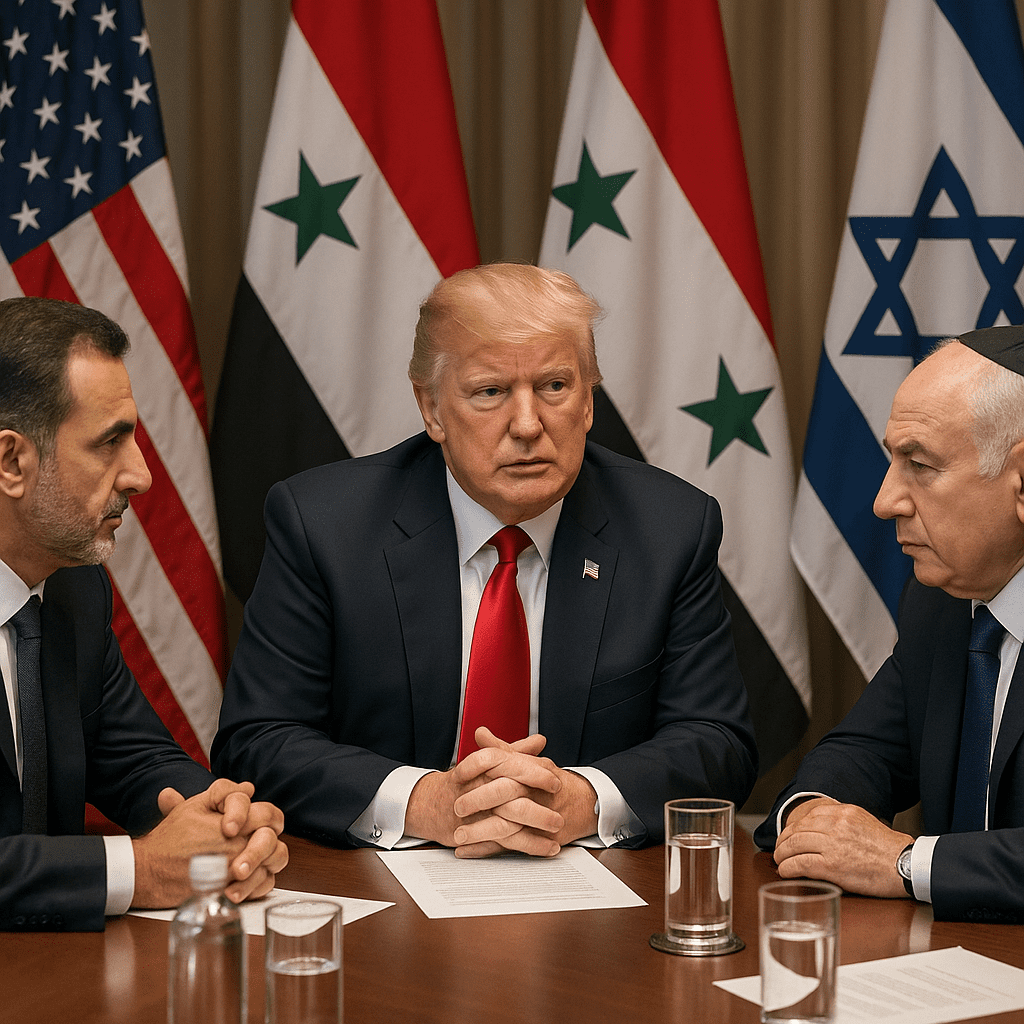President Donald Trump’s recent diplomatic initiatives in the Middle East have been instrumental in fostering regional stability and strengthening alliances. His engagement with Syrian President Ahmed al-Sharaa marks a significant step toward integrating Syria into the broader framework of Arab-Israeli relations. By advocating for Syria’s inclusion in the Abraham Accords, President Trump aims to expand the network of peace agreements between Israel and Arab nations, thereby promoting a more cohesive and peaceful Middle East.
In addition to encouraging diplomatic ties, President Trump has called for decisive actions to address security concerns. His request for Syria to deport individuals identified as ‘terrorists’ underscores a commitment to combating extremism. This approach aligns with the administration’s broader strategy of ensuring that nations take proactive measures to eliminate threats within their borders, contributing to the overall security of the region.
The lifting of U.S. sanctions on Syria serves as a catalyst for economic revitalization. By removing these economic barriers, the administration facilitates opportunities for American investment in Syria’s energy sector. This move is designed to stimulate economic growth and create a foundation for long-term stability. While the immediate benefits are clear, the complexities of rebuilding a war-torn economy may necessitate sustained efforts and resources to achieve the desired outcomes.
President Trump’s vision extends to positioning Syria as a regional ally in the fight against the resurgence of the Islamic State. By integrating Syria into a coalition against common adversaries, the administration seeks to leverage collective efforts to maintain security. This strategy, while ambitious, may require careful coordination and the establishment of robust mechanisms to ensure effective collaboration among diverse partners.
The administration’s willingness to engage in dialogue with Iran, contingent upon the abandonment of nuclear ambitions, reflects a pragmatic approach to diplomacy. By setting clear conditions, President Trump opens the door for potential negotiations aimed at reducing tensions. However, the success of such diplomatic endeavors may depend on the willingness of all parties to adhere to agreed-upon terms and the establishment of verifiable compliance measures.
Throughout these initiatives, President Trump has maintained a steadfast alliance with Israel, refraining from criticism despite recent military actions in Gaza. This unwavering support underscores the administration’s commitment to its allies. While this approach reinforces strong bilateral relations, it may also necessitate ongoing diplomatic efforts to address the concerns of other regional actors and to balance the complex dynamics inherent in Middle Eastern politics.
These comprehensive strategies reflect a commitment to fostering a stable and secure Middle East. As these policies unfold, continued attention to their implementation and the allocation of appropriate resources will be essential to achieving the administration’s objectives.
—
Ryan Mitchell reports on military funding, defense policy, and veteran support systems. He is a graduate of The Citadel and served as a civilian analyst for the Department of Defense before entering journalism. His reporting draws on firsthand knowledge of procurement systems, veterans’ programs, and the long-term cost of military readiness.



